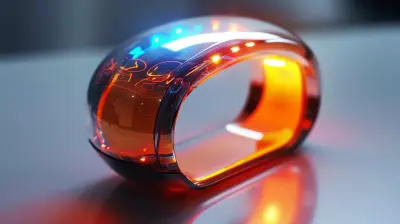Can Smart Speakers Improve Your Sleep? The Role of Voice-Activated Relaxation
19 May 2025
We live in a world that never sleeps. From the moment we wake up to the time we finally drift off, our brains are constantly buzzing with information, whether it’s from emails, social media, or the latest must-watch Netflix series. Sleep, once a sacred time to recharge, has increasingly become a struggle for many. But what if there was a simple, voice-activated solution that could help guide you into a peaceful slumber? Enter smart speakers.
These nifty devices, like Amazon Echo and Google Nest, are no longer limited to setting timers or playing your favorite playlists. They might just be the bedtime assistant you never knew you needed. But can smart speakers really improve your sleep? And what’s the role of voice-activated relaxation? Let’s dive into it.
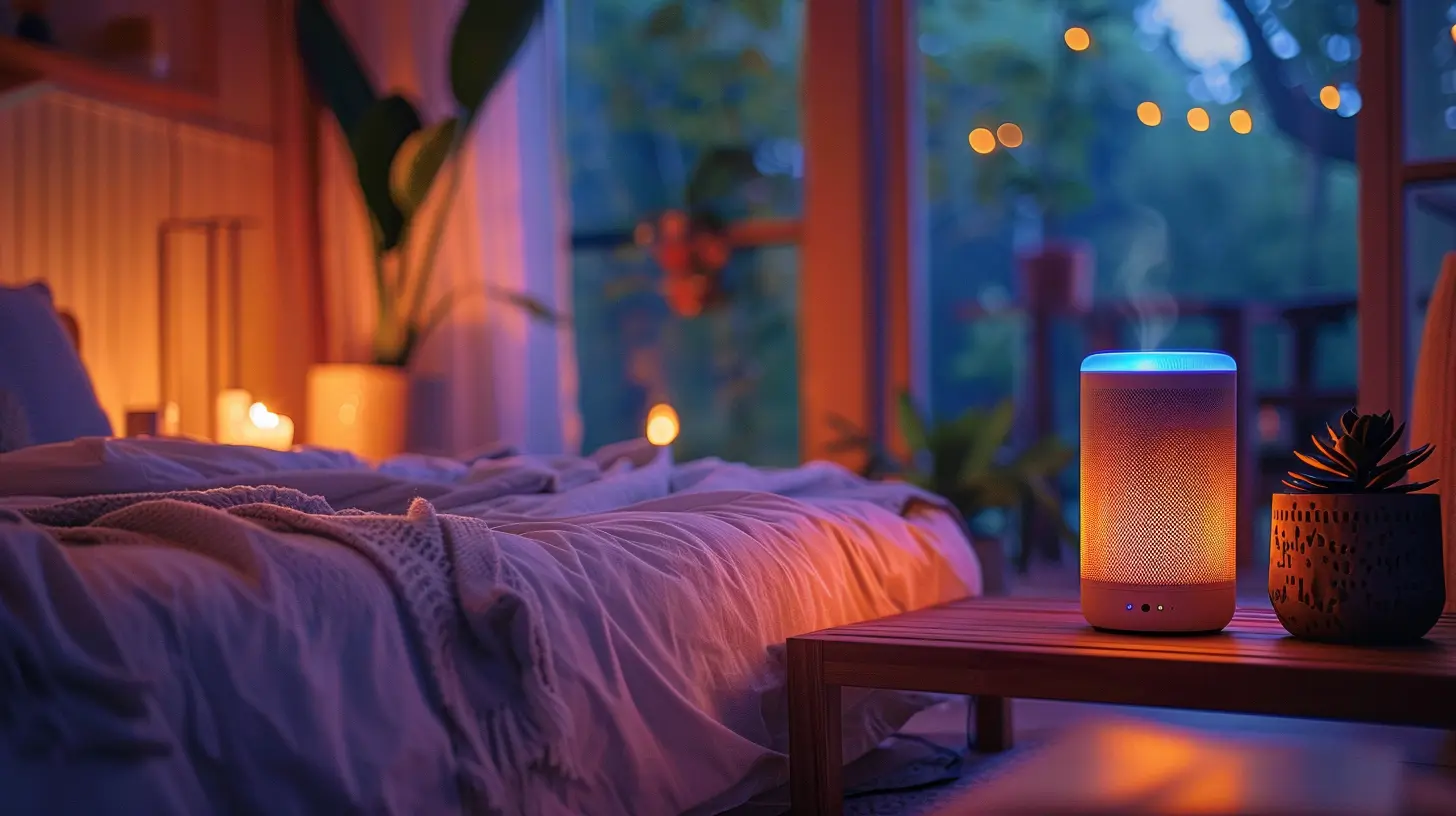
The Sleep Struggle Is Real
Before we get into the tech talk, let’s take a moment to address the elephant in the room: sleep deprivation. It’s becoming more and more common, and it's affecting people of all ages. Whether it's due to stress, anxiety, or the inability to switch off from screens, many of us are struggling with catching those precious Zs.According to various studies, adults need about 7-9 hours of sleep per night for optimal health. But how many of us actually get that? Between balancing work, family, and personal lives, sleep often takes a backseat. And when we finally do hit the pillow, our minds often refuse to cooperate. Racing thoughts, worries about tomorrow, or even that random song stuck in your head can make falling asleep feel like a monumental task.
This is where technology can lend a helping hand. Instead of adding to the problem, smart speakers can offer a solution. But how exactly do they do that?
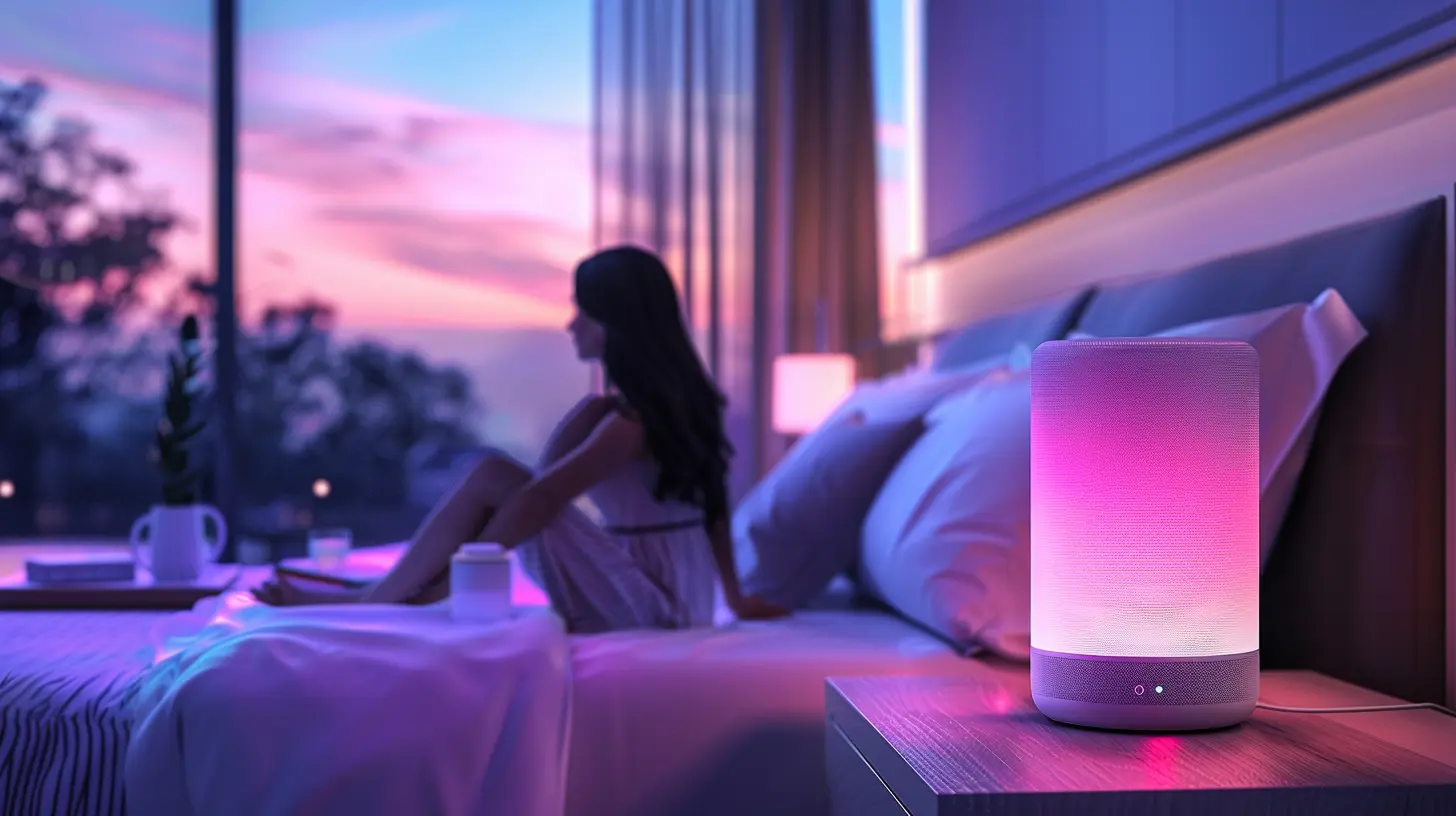
What Are Smart Speakers?
Okay, before we move forward, let’s clarify what smart speakers actually are for those who might be new to the game. In simple terms, smart speakers are voice-activated devices that can perform a variety of tasks simply by recognizing your voice commands. Devices like Amazon Echo (with Alexa), Google Nest (with Google Assistant), and Apple HomePod (with Siri) are all part of this growing smart speaker family.These speakers are designed to make your life easier by doing things like controlling smart home devices, answering questions, playing music, and setting alarms. But one of their lesser-known talents is helping with relaxation and sleep.
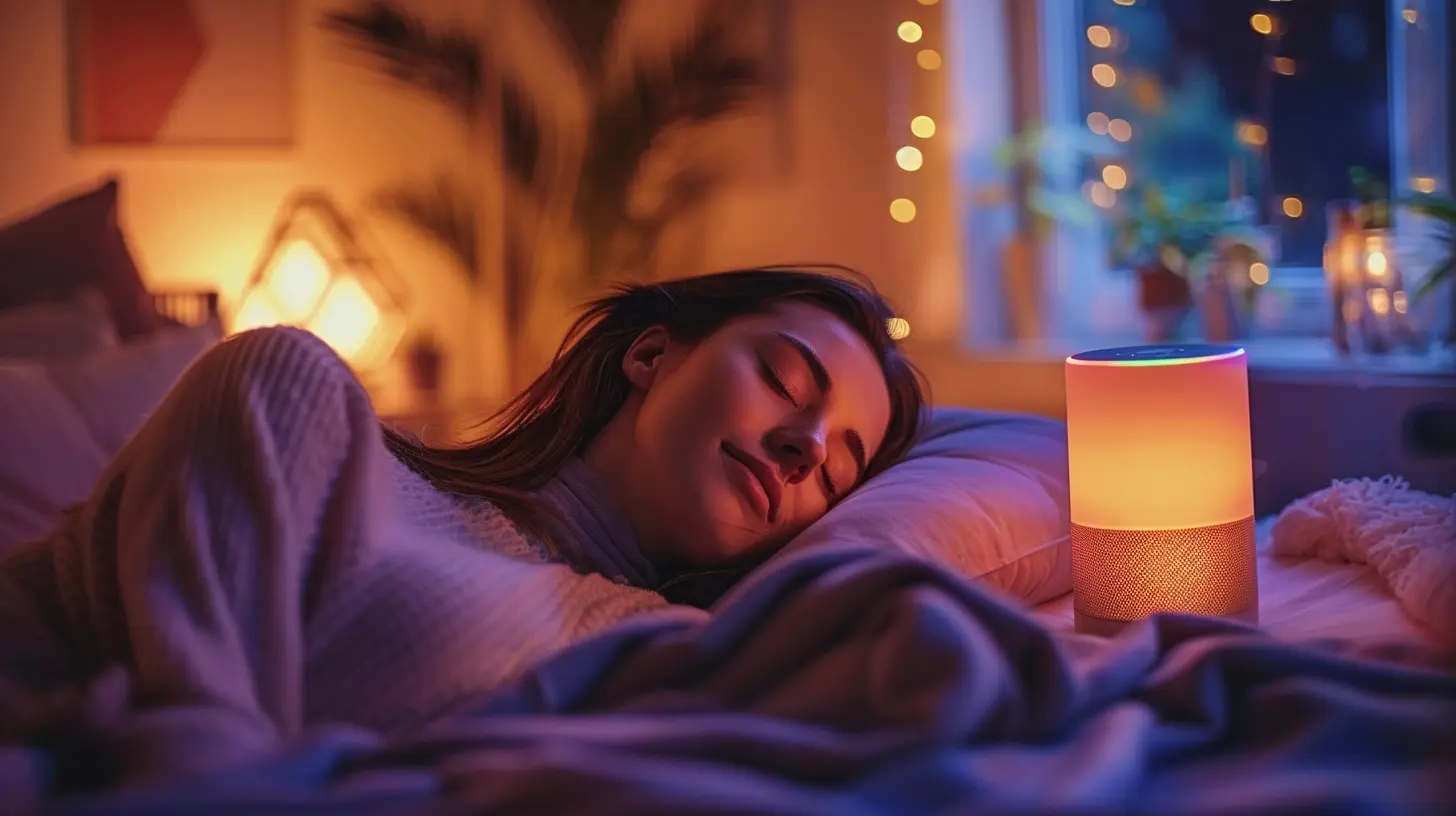
The Link Between Relaxation and Sleep
Before we can understand how smart speakers can improve your sleep, we need to talk about the relationship between relaxation and sleep. You see, relaxation isn't just a nice-to-have before bed—it's essential. It’s like the bridge you need to cross to get from the land of the awake to the blissful town of Sleepytown.When you’re relaxed, your body naturally starts to wind down, and your mind follows suit. Your heart rate slows, your breathing becomes more even, and your muscles begin to loosen up. All of this signals to your brain that it's time to rest. But in today’s fast-paced world, finding that relaxation isn’t always easy.
This is where voice-activated relaxation can come into play. Smart speakers can offer a variety of tools to help you unwind and prepare your body and mind for sleep.
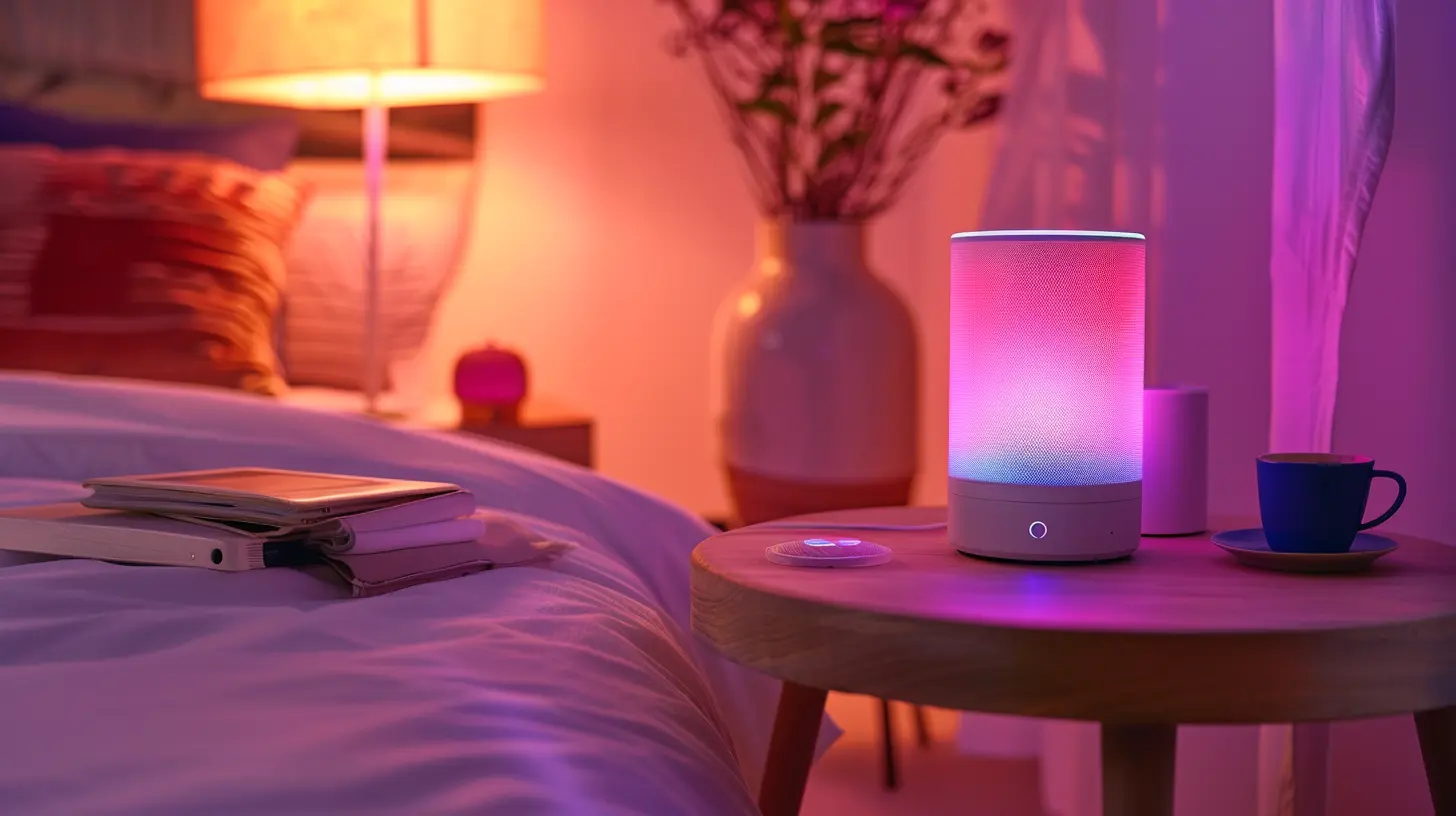
How Smart Speakers Aid Sleep
1. Guided Meditations
Ever tried meditating on your own and ended up thinking about what to have for breakfast tomorrow instead? Yeah, it happens to the best of us. Guided meditation, however, can be a game-changer. And guess what? Your smart speaker can lead the way.By simply saying, "Alexa, start a sleep meditation," or "Hey Google, play a relaxation guide," you can access a host of calming, sleep-inducing meditations. These guided sessions are specifically designed to help you shut off your racing thoughts, focus on your breathing, and ease into sleep.
Most smart speakers come with access to apps like Headspace, Calm, or even their own built-in relaxation programs. Some meditations focus on mindfulness, while others might use breathing techniques or body scans to help you drift off.
2. Ambient Sounds and White Noise
Raise your hand if you’ve ever fallen asleep to the sound of rain. Don’t worry, you’re not alone. Many people find that ambient sounds, like rainfall, ocean waves, or even the soft hum of a fan, can lull them into a peaceful sleep.Smart speakers can be your personal DJ for sleep sounds. You can ask your device to play white noise, nature sounds, or even a crackling fireplace, creating the perfect atmosphere for sleep. Just say something like, “Alexa, play rainforest sounds,” or “Hey Google, play white noise,” and let the soothing sounds take over.
Ambient sounds are particularly useful for those who live in noisy environments or people who need a bit of background noise to fall asleep. The best part? You don’t need to fiddle with buttons or a remote—just your voice.
3. Sleep Stories
Remember when you were a kid, and someone would read you a bedtime story? There’s something undeniably calming about being read to. Good news: You’re never too old for a bedtime story, and smart speakers are happy to oblige.Platforms like Calm and Audible offer sleep stories, which are essentially soothing narratives designed to help you relax and wind down. These stories are often told in soft, slow voices and are written to be calming rather than exciting. You can request your smart speaker to play a specific story, or ask for a random one to be selected.
This can be especially helpful for those who find it difficult to shut off their brain at night. Instead of focusing on your own thoughts, you can immerse yourself in a gentle story until sleep takes over.
4. Breathing Exercises
Breathing exercises are another fantastic way to calm your mind and body before bed. By controlling your breath, you can lower your heart rate and signal to your nervous system that it's time to relax.Smart speakers can guide you through these exercises. Whether it’s a simple "box breathing" technique (inhale for four seconds, hold for four, exhale for four, hold for four) or something a bit more complex, your smart speaker can walk you through the process. Just ask!
For example, you might say, “Alexa, help me relax with breathing exercises,” or “Hey Google, guide me through a relaxation exercise,” and the speaker will guide you step by step.
5. Sleep Timers
One of the simplest but most effective features of smart speakers is the sleep timer. If you prefer falling asleep to music, podcasts, or relaxing sounds, you can set a timer so that the audio automatically turns off after a certain period of time. No more waking up in the middle of the night to turn off your playlist!All you have to do is say something like, “Alexa, set a sleep timer for 30 minutes,” and drift off knowing that the audio will stop on its own.
The Pros and Cons of Using Smart Speakers for Sleep
Like any tool, smart speakers have their advantages and disadvantages when it comes to sleep.Pros:
- Convenience: You don’t have to get out of bed or fumble with your phone. Just use your voice.- Customizable: From white noise to guided meditation, you can tailor the experience to your personal preferences.
- Hands-Free: Perfect for those who want to avoid screens before bed.
- Routine-Building: Consistent use of sleep aids like meditation or ambient sounds can help create a reliable sleep routine.
Cons:
- Dependence: Relying too much on external aids could make it harder to sleep without them.- Privacy Concerns: Some people may feel uneasy about having a "listening" device in their bedroom, even though smart speakers can be muted.
- Potential for Distraction: If you start using your smart speaker for non-sleep-related tasks (like checking the news or answering emails), it could become counterproductive.
Final Thoughts: Can Smart Speakers Really Improve Sleep?
So, can smart speakers improve your sleep? The answer is yes—if used correctly. While they aren’t a magic cure for insomnia, they can certainly be a helpful tool in creating a more relaxing, calming bedtime routine. Whether it’s through guided meditation, sleep stories, or soothing ambient sounds, these devices offer a personalized way to unwind and prepare for rest.The key is to use your smart speaker mindfully, focusing on relaxation rather than letting it become another source of distraction in your life. If you struggle with sleep or simply want to improve your nightly routine, why not give it a try? After all, it’s as simple as saying, “Alexa, help me relax.”
all images in this post were generated using AI tools
Category:
Smart SpeakersAuthor:

Marcus Gray
Discussion
rate this article
4 comments
Shelby Barlow
Unlocking dreams: do whispers from devices hold the key?
June 11, 2025 at 12:29 PM

Marcus Gray
Yes, smart speakers can play a significant role in enhancing sleep through soothing sounds and guided relaxation, acting as modern tools for unlocking restful dreams.
Emma Reese
Smart speakers for sleep? Sure, if you enjoy being lulled to dreamland by a robot's soothing monologue!
May 26, 2025 at 5:03 AM

Marcus Gray
While it may seem unconventional, many find that a smart speaker's calming voice and soothing sounds can actually enhance relaxation and improve sleep quality.
Isadora Hernandez
Absolutely! Smart speakers have the potential to revolutionize our sleep experience. By harnessing the power of voice-activated relaxation, they can create calming environments, provide soothing sounds, and guide us into restful states. Embrace technology for better sleep and elevate your nightly routine to new heights!
May 23, 2025 at 3:19 AM

Marcus Gray
Thank you for your insightful comment! Indeed, smart speakers can be valuable tools for enhancing our sleep quality through personalized relaxation techniques. Embracing this technology can truly transform our nightly routines.
Tracie McNeil
Great insights! Sleep tech is evolving!
May 20, 2025 at 1:43 PM

Marcus Gray
Thank you! I'm glad you found the insights helpful. Sleep tech is indeed an exciting field!
